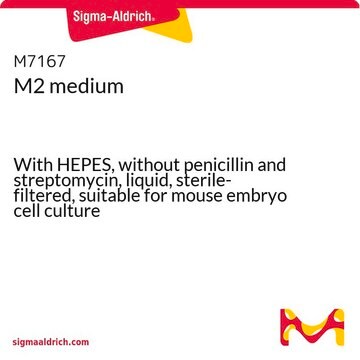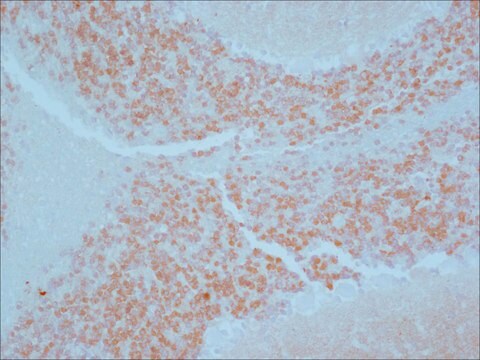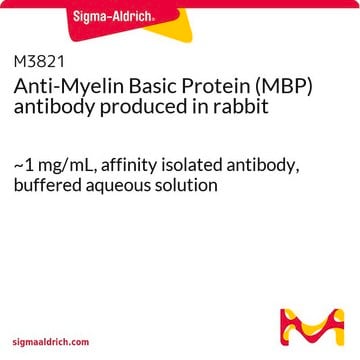Fontos dokumentumok
C7738
Anti-β-Catenin−Cy3 antibody, Mouse monoclonal
clone 15B8, purified from hybridoma cell culture
Szinonimák:
Monoclonal Anti-β-Catenin
About This Item
Javasolt termékek
biológiai forrás
mouse
Minőségi szint
konjugátum
CY3 conjugate
antitest forma
purified immunoglobulin
antitest terméktípus
primary antibodies
klón
15B8, monoclonal
form
buffered aqueous solution
molekulatömeg
antigen 94 kDa
faj reaktivitás
chicken, bovine, human, canine
koncentráció
~1 mg/mL
technika/technikák
direct immunofluorescence: 1:100 using methanol/acetone-fixed bovine MDBK/MCF-7 Cell Line
izotípus
IgG1
UniProt elérési szám
kiszállítva
wet ice
tárolási hőmérséklet
2-8°C
célzott transzláció utáni módosítás
unmodified
Géninformáció
human ... CTNNB1(1499)
Looking for similar products? Látogasson el ide Útmutató a termékösszehasonlításhoz
Általános leírás
Egyediség
Immunogen
Alkalmazás
- direct immunofluorescence
- western blotting
- staining
- immunohistochemistry
Biokémiai/fiziológiai hatások
Fizikai forma
Jogi információk
Jogi nyilatkozat
Nem találja a megfelelő terméket?
Próbálja ki a Termékválasztó eszköz. eszközt
Tárolási osztály kódja
10 - Combustible liquids
WGK
WGK 2
Lobbanási pont (F)
Not applicable
Lobbanási pont (C)
Not applicable
Analitikai tanúsítványok (COA)
Analitikai tanúsítványok (COA) keresése a termék sarzs-/tételszámának megadásával. A sarzs- és tételszámok a termék címkéjén találhatók, a „Lot” vagy „Batch” szavak után.
Már rendelkezik ezzel a termékkel?
Az Ön által nemrégiben megvásárolt termékekre vonatkozó dokumentumokat a Dokumentumtárban találja.
Tudóscsoportunk valamennyi kutatási területen rendelkezik tapasztalattal, beleértve az élettudományt, az anyagtudományt, a kémiai szintézist, a kromatográfiát, az analitikát és még sok más területet.
Lépjen kapcsolatba a szaktanácsadással








